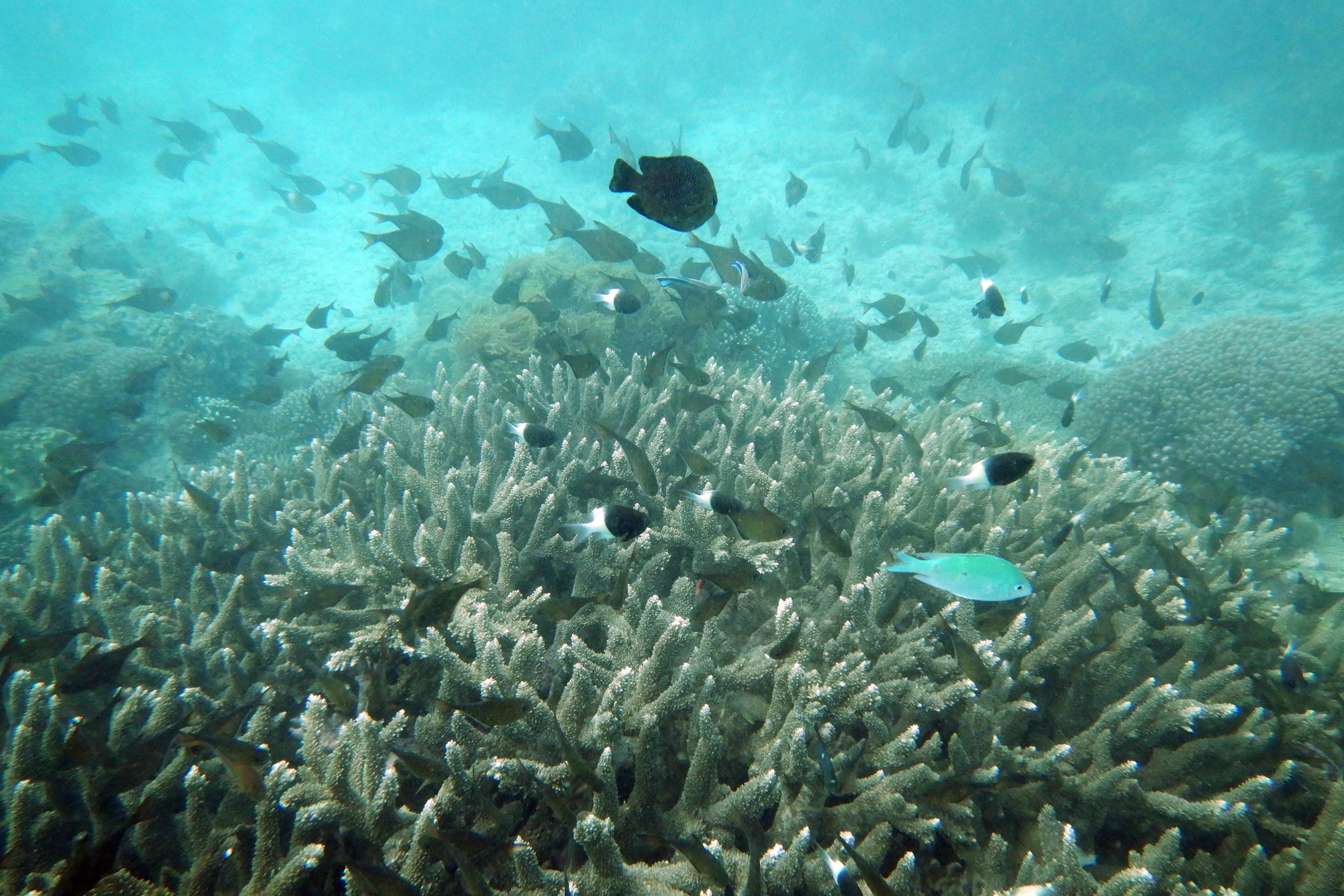Ocean heat record smashed amid ‘hot tub’ temperatures: ‘The water feels like a bath’
‘We are putting oceans under more stress than we have done at any point in history’

Your support helps us to tell the story
From reproductive rights to climate change to Big Tech, The Independent is on the ground when the story is developing. Whether it's investigating the financials of Elon Musk's pro-Trump PAC or producing our latest documentary, 'The A Word', which shines a light on the American women fighting for reproductive rights, we know how important it is to parse out the facts from the messaging.
At such a critical moment in US history, we need reporters on the ground. Your donation allows us to keep sending journalists to speak to both sides of the story.
The Independent is trusted by Americans across the entire political spectrum. And unlike many other quality news outlets, we choose not to lock Americans out of our reporting and analysis with paywalls. We believe quality journalism should be available to everyone, paid for by those who can afford it.
Your support makes all the difference.Global ocean temperatures have reached a record high, prompting warnings of serious consequences for the Earth’s climate.
Reaching an average of 20.96C, according to the EU’s climate change service Copernicus, hotter ocean temperatures contribute to the melting of ocean glaciers and subsequent rising sea levels, as well as an increase in the amount of carbon dioxide in the atmosphere.
Warmer waters also disturb underwater species with experts warning that fish stocks could be affected, the BBC reports.
This week’s average ocean temperature beat the 2016 record of 20.95C, with the new record said to be a response to the warmer weather.
The last record set was during El Niño, a natural climate pattern where the ocean’s surface warms along the South American equator, temporarily bumping up the global temperature.
Another phase of El Niño has now begun, but scientists have warned that it is not at its strongest point and ocean temperatures will continue to rise.
The temperature of the sea surface reached 38.44C in Florida last week, the standard temperature for a hot tub.
The recent peak in Florida is over seven degrees above the ocean’s normal temperatures of 23C to 31C, according to the National Oceanic and Atmospheric Administration (NOAA).
Dr Kathryn Lesneski, who monitors the marine heatwave in the Gulf of Mexico for the NOAA, told the BBC: “The water feels like a bath when you jump in.
“Right now there is widespread coral bleaching at shallow reefs in Florida and many corals have already died.”

There is concern from scientists over the timing of the record heat.
Dr Samantha Burgess, from the Copernicus Climate Change Service, said: “The fact that we’ve seen the record now makes me nervous about how much warmer the ocean may get between now and next March.”
Dr Matt Frost, from the Plymouth Marine Lab in the UK, pointed to pollution and overfishing as key reasons for this record-setting temperature.
He said: “We are putting oceans under more stress than we have done at any point in history.”
Scientists say the seas are getting warmer because they are absorbing most of the heat from greenhouse gas emissions generated by humans.
“The more we burn fossil fuels, the more excess heat will be taken out by the oceans, which means the longer it will take to stabilise them and get them back to where they were,” Dr Burgess told the BBC.



Join our commenting forum
Join thought-provoking conversations, follow other Independent readers and see their replies
Comments